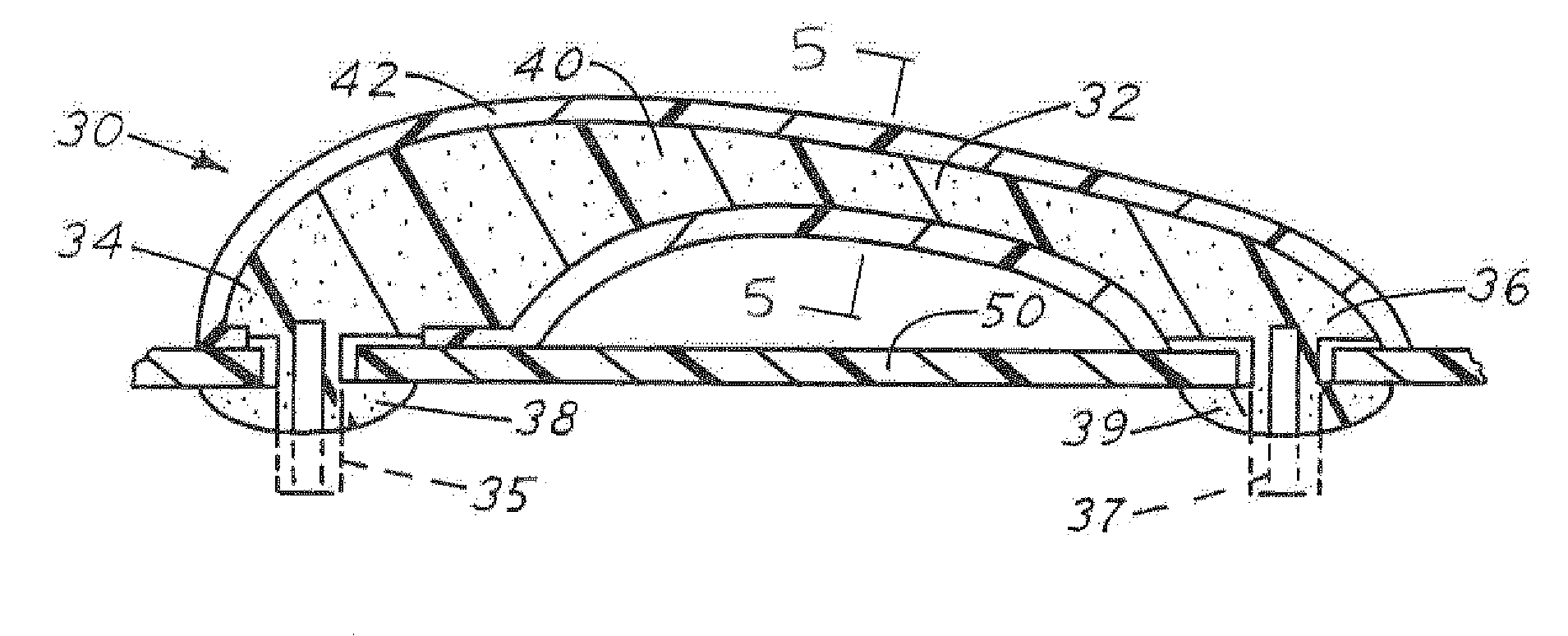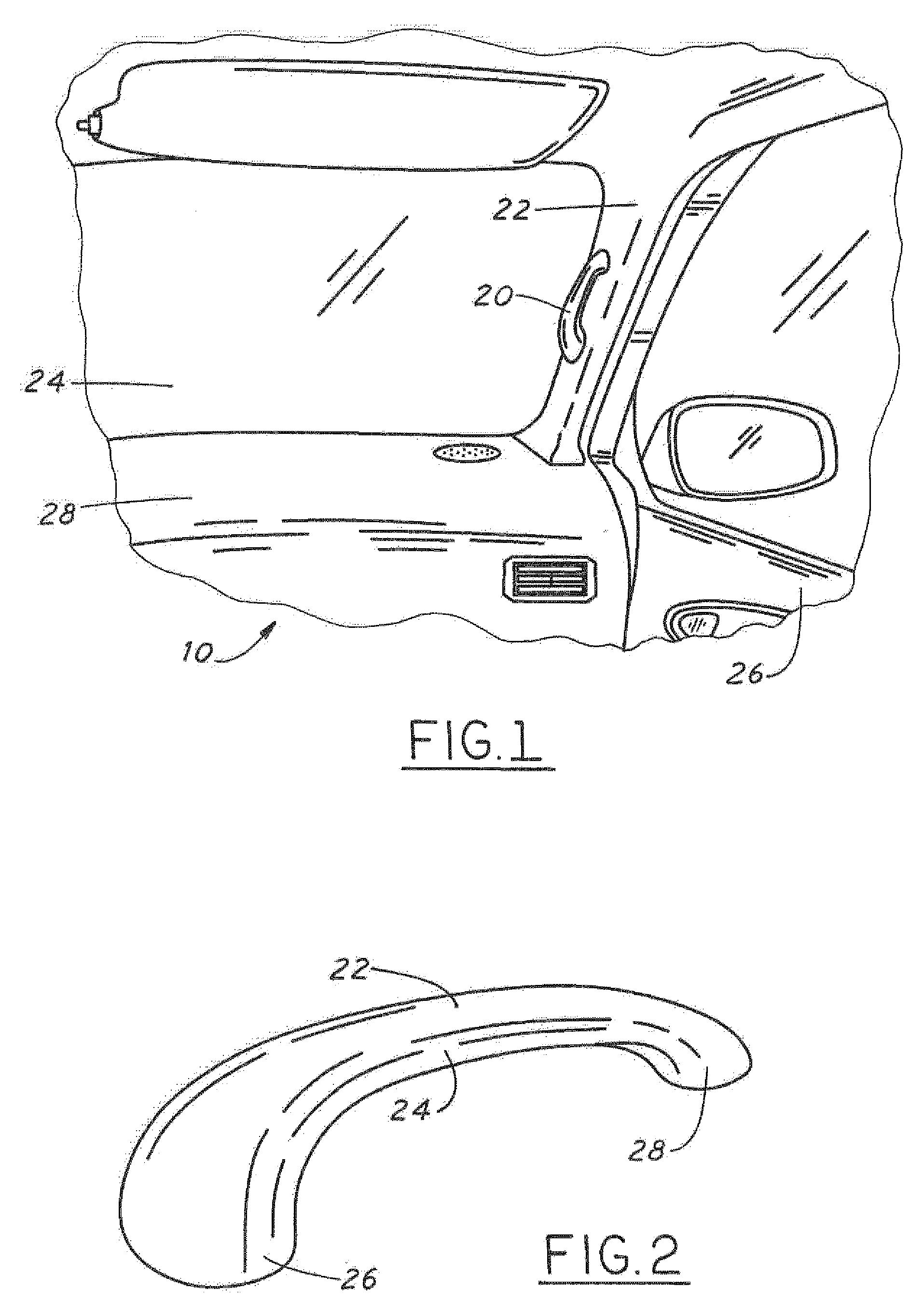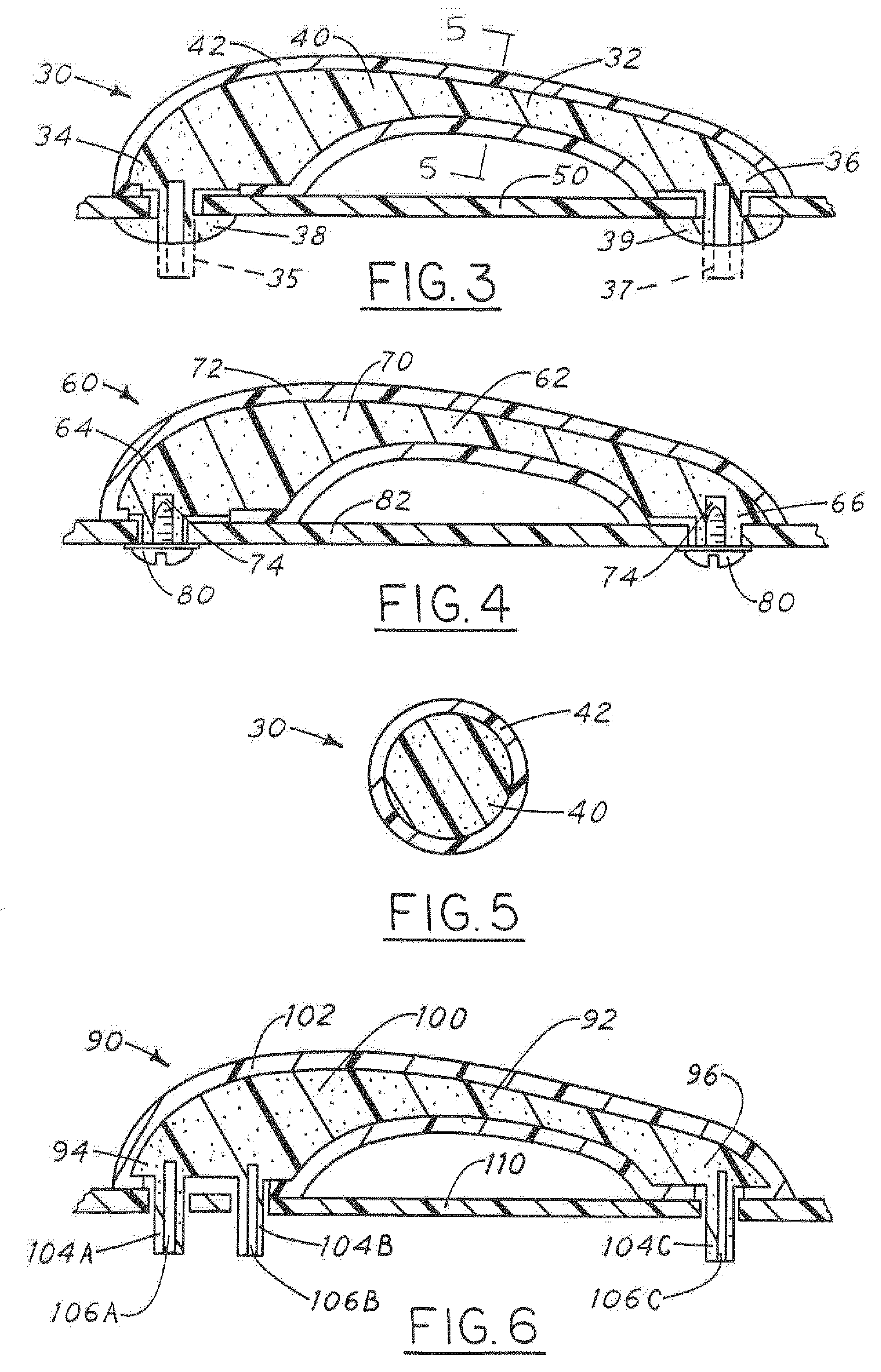Foamed core process for large cross-sections of grab handles
a grab handle and foam core technology, applied in the field of plastic handle manufacturing, can solve the problems of high production cost, excess cycle time, waste of resources, etc., and achieve the effects of eliminating gas assist equipment, running and tooling costs, and less expensiv
- Summary
- Abstract
- Description
- Claims
- Application Information
AI Technical Summary
Benefits of technology
Problems solved by technology
Method used
Image
Examples
first embodiment
[0019]the inventive door handle or grab handle 30 in accordance with the present invention is shown in FIG. 3. The handle member 30 includes a central portion 32 and two end portions 34 and 36. The handle 30 is made of two different layers or types of material. This is also shown in the cross-sectional view in FIG. 5. The handle 30 has an interior core 40 made from a structural foam core material and an outer plastic shell or skin member 42.
[0020]The ends 34 and 36 of the handle are formed with elongated protrusions 35 and 37 which are shown in phantom in the form that they are provided or molded with the structural foam core 40. The plastic shell or skin 42 is preferably made from a polypropylene material and is over-molded on the foam core 40.
[0021]When the handle 30 is attached to pillar or door member panel 50, as shown in FIG. 3, the protrusions 35 and 37 are formed into the ends 38 and 39, respectively, in any conventional manner, such as by heat staking. This firmly affixes t...
second embodiment
[0027]In the present invention, a handle member 60 is provided, as shown in FIG. 4. The handle 60 has a central body portion 62 and two end members 64 and 66. The handle member 60 has a central foam core portion 70 and a thin, hard shell or skin 72 which is over-molded on top of the core. In this embodiment, the ends 64 and 66 of the handle member 60 are formed with blind holes or channels 74. In this manner, fastener members 80, such as bolts or screws, are used to secure the handle member 60 to a substrate member 80, such as a pillar member or door panel members.
[0028]Another embodiment of the present invention is shown in FIG. 6 and referred to generally by the reference numeral 90. The handle member 90 includes a central curved portion 92 and two end members 94 and 96. The handle member 90 includes a foamed central core member 100 and a thin plastic shell or skin 102. Again, the skin member can be either a hard or soft plastic material and is over-molded onto the foamed core mem...
third embodiment
[0031]FIG. 7 illustrates the present invention, while FIG. 8 schematically illustrates a mold in which the embodiment is manufactured. In this embodiment of the invention, the handle member is referred to generally by the reference numeral 120 and consists of a central non-structural foamed core member 125 and a hard over-molded structural skin member 130. The core member 125 is formed with a plurality of openings 132 and 134, etc. which are used as locator holes for pin members 136 and 138, respectively, which are positioned in the over-molding mold cavity. The locator pins 136 and 138 are shown in the mold in FIG. 8. In this regard, the mold is referred to generally by the reference numeral 140 and consists of a cavity member 142 and a core mold member 144. As shown in FIG. 8, the non-structural foam core member 125 is positioned in the manner shown in the mold cavity 144, where it has been over-molded by the structural skin or shell. The handle member 120, as shown in FIG. 7, als...
PUM
| Property | Measurement | Unit |
|---|---|---|
| durable | aaaaa | aaaaa |
| shapes | aaaaa | aaaaa |
| curvature | aaaaa | aaaaa |
Abstract
Description
Claims
Application Information
 Login to View More
Login to View More - R&D
- Intellectual Property
- Life Sciences
- Materials
- Tech Scout
- Unparalleled Data Quality
- Higher Quality Content
- 60% Fewer Hallucinations
Browse by: Latest US Patents, China's latest patents, Technical Efficacy Thesaurus, Application Domain, Technology Topic, Popular Technical Reports.
© 2025 PatSnap. All rights reserved.Legal|Privacy policy|Modern Slavery Act Transparency Statement|Sitemap|About US| Contact US: help@patsnap.com



